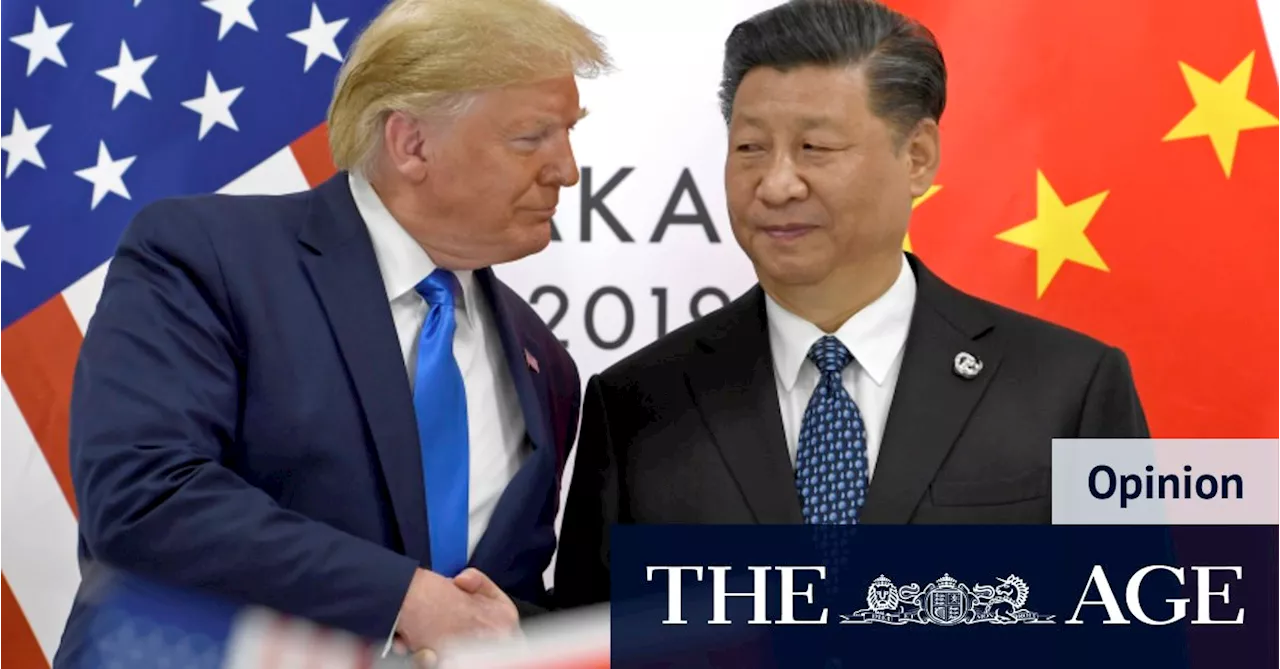China's announcement of a record trade surplus with the US ahead of Donald Trump's inauguration reignites trade tensions. The $992.2 billion surplus, coupled with a surge in December exports, fuels concerns about Trump's potential to impose tariffs on Chinese goods. The article analyzes the factors contributing to China's surplus, including overcapacity in certain industries and weak domestic demand, and explores the potential consequences of a new trade war for both countries.
China’s announcement of a record trade surplus on Monday, a week ahead of Donald Trump’s inauguration, is inadvertently, but unavoidably, provocative.to impose tariffs of up to 60 per cent on China’s exports to the US on “Day One” of his second term as president, the $US992.2 billion surplus will be like a red rag to a bull.More particularly, while the growth in exports to the US of 4.9 per cent in 2024 might be relatively modest, a 15.
To date, starting more seriously in the latter months of last year, the efforts have been focused on the trade-in policy, with the range of products and sectors targeted continually being expanded. The prospect of China falling into deflationary trap – the “Japanification” of its economy – has led to calls from economists outside China to do a lot more to boost consumption. That may well happen at the National People’s Congress in March, where the country’s most senior leaders will set out their economic objectives and strategies for this year.
China would look to increase its citizens’ income, increase subsidies for consumers and improve social security, he said. The most obvious and least wasteful measures that might lift consumption would be to target low-income households by expanding and strengthening the social security system. The impact of that trade war, if Trump follows through with his threat, could be even worse if China responds by diverting its exports to other countries.
If the US does build the promised wall against Chinese imports and China redirects its increased surplus industrial capacity to other markets, it is almost inevitable that those economies will move to protect their domestic industries and jobs, exacerbating the impact of the trade war on China.
TRADE WAR CHINA ECONOMIC SURPLUS TARIFFS DOMESTIC DEMAND
Australia Latest News, Australia Headlines
Similar News:You can also read news stories similar to this one that we have collected from other news sources.
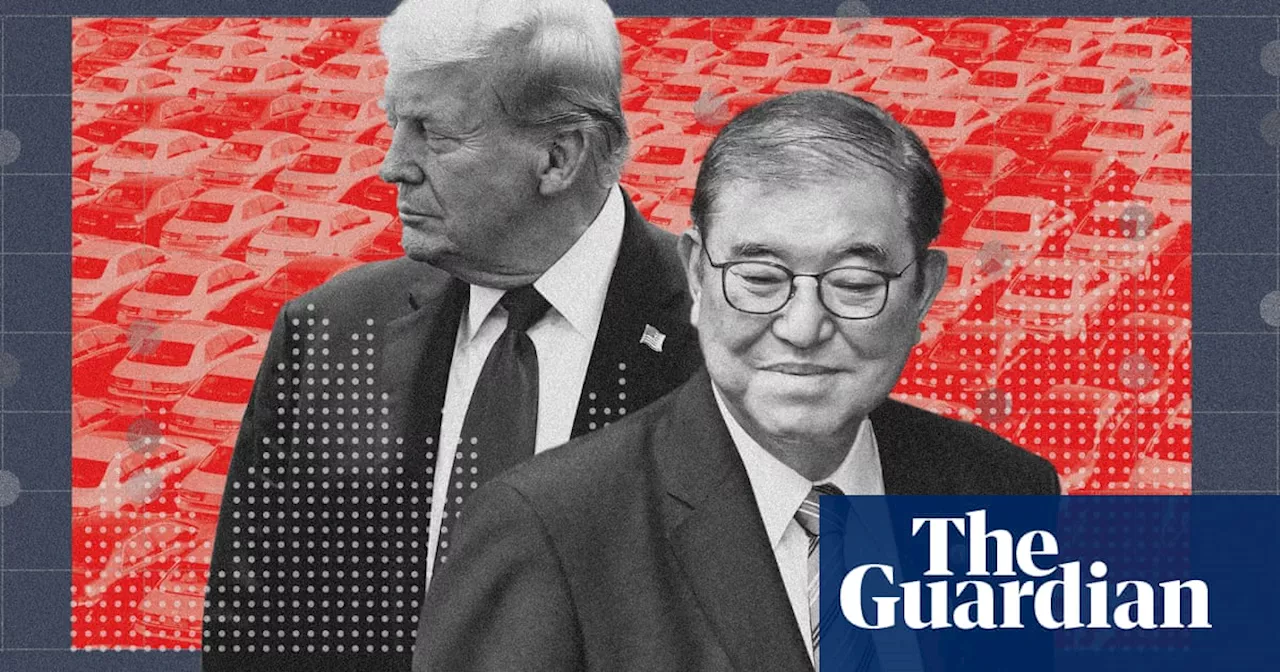 Japan's China Policy in the Shadow of Trump's Trade WarJapan's close relationship with the US, a cornerstone of its foreign and security policy, may be tested by Trump's trade war policies. The article explores the potential impact of Trump's approach on Japan's alliances and security in a region increasingly defined by tensions with China and North Korea.
Japan's China Policy in the Shadow of Trump's Trade WarJapan's close relationship with the US, a cornerstone of its foreign and security policy, may be tested by Trump's trade war policies. The article explores the potential impact of Trump's approach on Japan's alliances and security in a region increasingly defined by tensions with China and North Korea.
Read more »
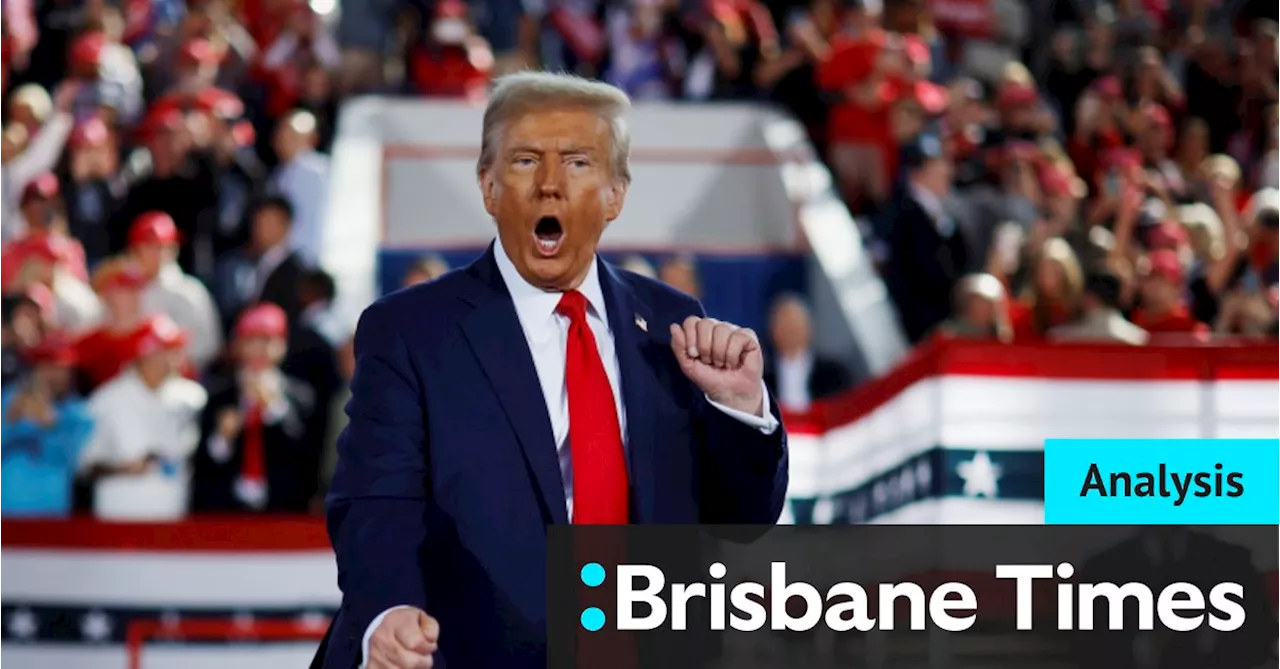 Trump's Absolute Power and its Implications for AustraliaThis article explores the implications of Donald Trump's unprecedented power during his presidency, focusing on his potential impact on international relations and trade. It analyzes Trump's policies, including nativism, protectionism, isolationism, and nationalism, and their likely consequences for Australia. The article examines Trump's approach to trade, his potential trade war with China, and the implications for Australia's economy. It also discusses Trump's immigration policies and their potential impact on Australia's political and social landscape.
Trump's Absolute Power and its Implications for AustraliaThis article explores the implications of Donald Trump's unprecedented power during his presidency, focusing on his potential impact on international relations and trade. It analyzes Trump's policies, including nativism, protectionism, isolationism, and nationalism, and their likely consequences for Australia. The article examines Trump's approach to trade, his potential trade war with China, and the implications for Australia's economy. It also discusses Trump's immigration policies and their potential impact on Australia's political and social landscape.
Read more »
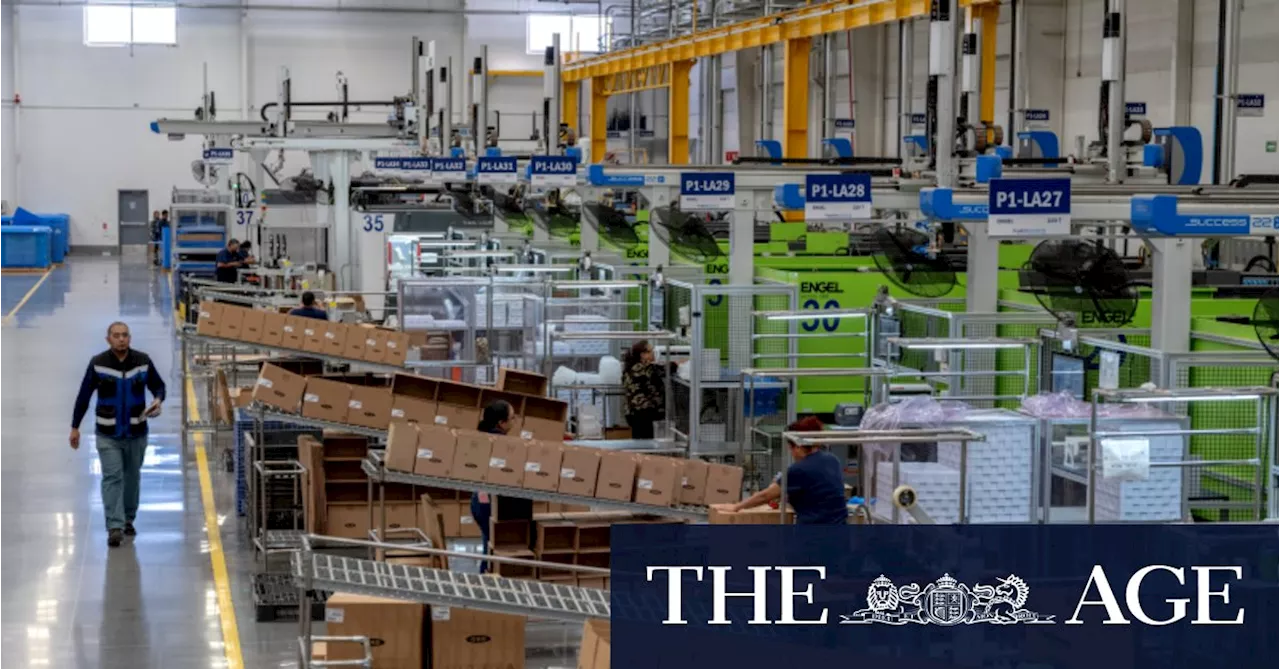 ‘Trump hates China more’: Mexicans bet that Trump is bluffing on tariffsAs Donald Trump vows an expanded trade war, businesses in Mexico are continuing with factory expansions. They assume their country remains central to America’s goal to get less dependent on China.
‘Trump hates China more’: Mexicans bet that Trump is bluffing on tariffsAs Donald Trump vows an expanded trade war, businesses in Mexico are continuing with factory expansions. They assume their country remains central to America’s goal to get less dependent on China.
Read more »
 Trump the (Chinese) Nation Builder: China's Manufacturing SurgeThe author argues that Donald Trump's trade policies have inadvertently accelerated China's development in high-tech manufacturing. Despite the US's attempts to curb China's economic rise, China has made significant advancements in areas like electric cars, robots, and rare materials, becoming more self-sufficient and competitive on a global scale. The article suggests that a mutually beneficial agreement between the US and China is crucial to avoid escalating trade tensions.
Trump the (Chinese) Nation Builder: China's Manufacturing SurgeThe author argues that Donald Trump's trade policies have inadvertently accelerated China's development in high-tech manufacturing. Despite the US's attempts to curb China's economic rise, China has made significant advancements in areas like electric cars, robots, and rare materials, becoming more self-sufficient and competitive on a global scale. The article suggests that a mutually beneficial agreement between the US and China is crucial to avoid escalating trade tensions.
Read more »
 Mandelson to Lead UK-US Trade Talks Amid Trump Presidency ConcernsPeter Mandelson, former UK trade secretary, will head UK-US trade talks during a potential second Trump presidency. Concerns over Trump's proposed tariffs have led to Mandelson's appointment, despite his past critical remarks about Trump. Nigel Farage, a political veteran with close ties to Trump, has also offered to facilitate UK-US relations.
Mandelson to Lead UK-US Trade Talks Amid Trump Presidency ConcernsPeter Mandelson, former UK trade secretary, will head UK-US trade talks during a potential second Trump presidency. Concerns over Trump's proposed tariffs have led to Mandelson's appointment, despite his past critical remarks about Trump. Nigel Farage, a political veteran with close ties to Trump, has also offered to facilitate UK-US relations.
Read more »
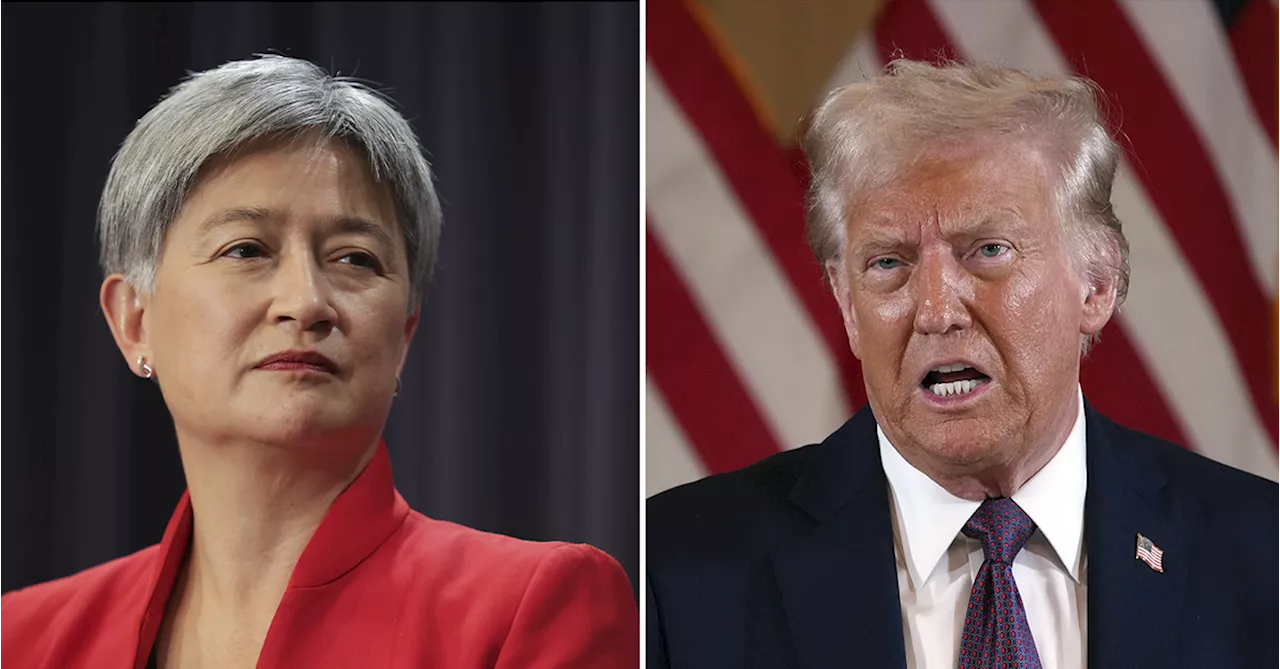 Senator Wong to Attend Trump's Inauguration Amid Trade War FearsAustralian Senator Penny Wong will attend President Donald Trump's inauguration, raising questions about the future of trade relations between the two countries. Trump's protectionist trade policies, including tariffs on goods from Canada, Mexico, and China, have sparked concerns in Australia about a potential escalation in trade wars.
Senator Wong to Attend Trump's Inauguration Amid Trade War FearsAustralian Senator Penny Wong will attend President Donald Trump's inauguration, raising questions about the future of trade relations between the two countries. Trump's protectionist trade policies, including tariffs on goods from Canada, Mexico, and China, have sparked concerns in Australia about a potential escalation in trade wars.
Read more »
